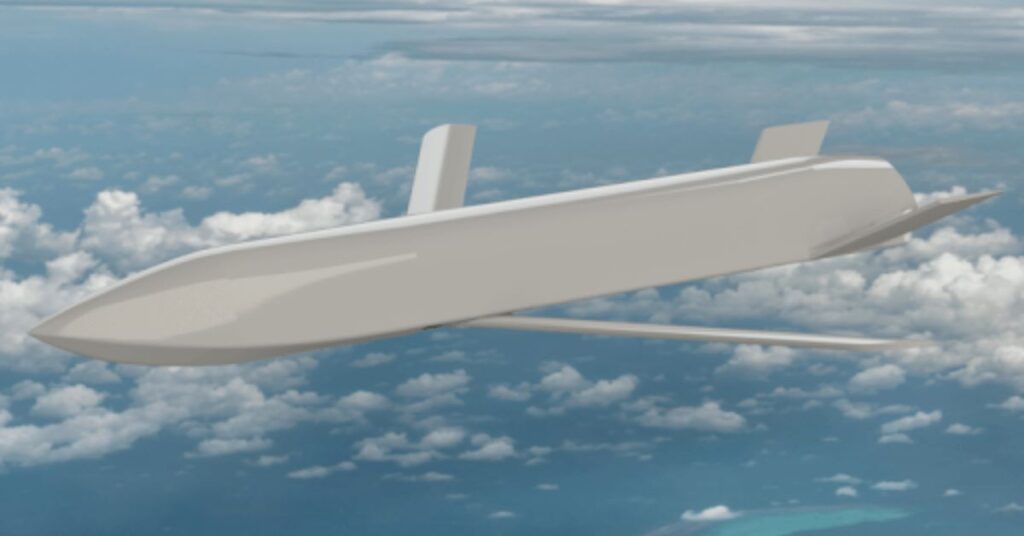Defense Daily
-
 Nuclear Modernization
Nuclear ModernizationNNSA Explores Pilot Project With AWS For Genesis, Fed Spending Site Says
The National Nuclear Security Administration (NNSA) has awarded Amazon Web Services (AWS) a contract worth up to $30.7 million to complete high-performance computing support and data processing services for the […]
-
 Pentagon
PentagonPentagon Launches Pilot Waiving Fees For 400 Patents To Help ‘Productize’ Its Billions In IP
The Pentagon wants to license more of its intellectual property to industry, and on Thursday launched a two-year pilot project waiving fees and royalties for around 400 patents in top […]
-
 Nuclear Modernization
Nuclear ModernizationNNSA’s Williams: President Trump Will Make Call On Nuclear Testing
Brandon Williams, administrator of the National Nuclear Security Administration (NNSA), told the Exchange Monitor Wednesday it is “certainly not my job to agree” with President Donald Trump on whether to […]
-
 Missile Defense
Missile DefenseDoD Names Golden Dome Deputy
Secretary of Defense Pete Hegseth on Thursday announced the White House has nominated Army Maj. Gen. Brian Gibson to be appointed as lieutenant general and assigned as military deputy to […]
Tagged in: -
 Navy/USMC
Navy/USMCDDG-1000 Finishes HII Builders Trials After Hypersonic Launcher Installed
HII’s [HII] Ingalls Shipbuilding division this week announced it completed builder’s sea trials for the USS Zumwalt (DDG-1000) destroyer following the completion of a modernization period that makes it the […]
Tagged in: -
 Business/Financial
Business/FinancialAnduril Expanding In Southern California With 1.2 Million Square Feet Of Space
Anduril Industries on Thursday said it is adding nearly 1.2 million square feet of office and industrial space at a new campus in Southern California, a sign of the company’s […]
-
 Space
SpaceSDA Awards Starfish Space $53 Million For Deorbiting Services Of PWSA Satellites
Startup Starfish Space on Wednesday said it received a $52.5 million contract from the Space Force’s Space Development Agency (SCA) to provide deorbit-as-a-service (DaaS) for satellites within the agency’s constellation […]
-
 Business/Financial
Business/FinancialCACI Posts Strong Earnings Gains In Second Quarter
CACI International [CACI] on Wednesday reported higher earnings and sales in its second quarter of fiscal year 2026 with growth across its customer segments despite the recent government shutdown. Net […]
-
Thursday, January 22, 2026
- Appropriators Fund More Multi-Years For Munitions, But Not All Of DoD’s ‘Very Late’ Request
- Lawmakers Boost LSM Spending, Confirm Fincantieri As Shipbuilder But Warn On Cost Growth
- Space GMTI Partially Moves To Procurement Funding Account
- Appropriators Direct F/A-XX EMD Contract Award While Boosting Funding To Nearly $1 Billion
- Blue Origin Reveals TeraWave LEO/MEO Constellation For Enterprise, Government Connectivity
- Navy Reschedules Modular Missile Industry Day
- Space Force To Undertake Pilot Acquisition Reform Program, Appropriators Say
- Hypersonic Testing Company Stratolaunch Raises New Capital
- Wittman Introduces Bill To Speed Arms Sales To Taiwan
- Space Systems Command Seeks Help With Satellite Ground Systems, Ops Centers
-
Thursday, January 22, 2026
- Appropriators Fund More Multi-Years For Munitions, But Not All Of DoD’s ‘Very Late’ Request
- Lawmakers Boost LSM Spending, Confirm Fincantieri As Shipbuilder But Warn On Cost Growth
- Space GMTI Partially Moves To Procurement Funding Account
- Appropriators Direct F/A-XX EMD Contract Award While Boosting Funding To Nearly $1 Billion
- Blue Origin Reveals TeraWave LEO/MEO Constellation For Enterprise, Government Connectivity
- Navy Reschedules Modular Missile Industry Day
- Space Force To Undertake Pilot Acquisition Reform Program, Appropriators Say
- Hypersonic Testing Company Stratolaunch Raises New Capital
- Wittman Introduces Bill To Speed Arms Sales To Taiwan
- Space Systems Command Seeks Help With Satellite Ground Systems, Ops Centers

